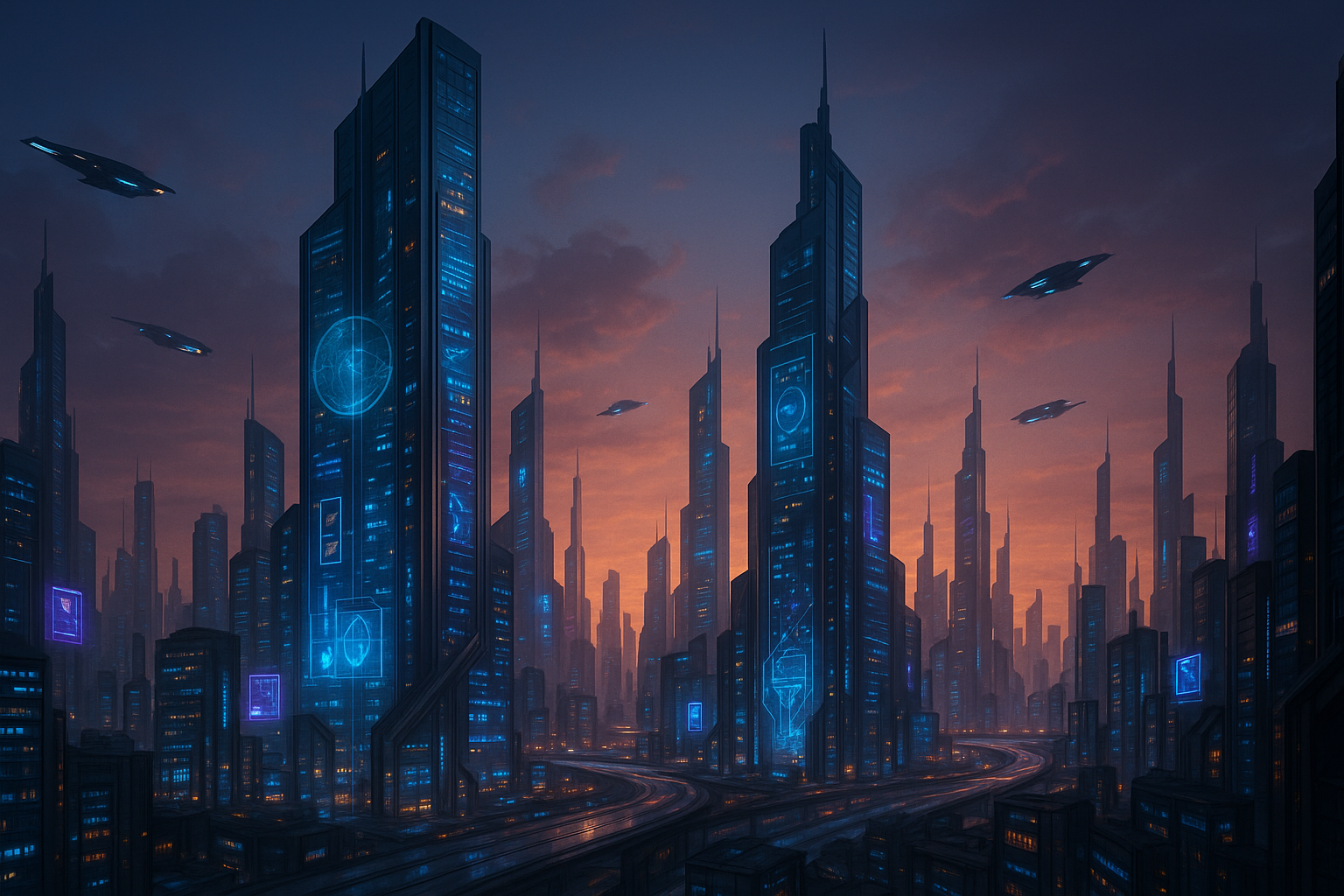
Great characters transcend their futuristic settings to touch universal human truths.
In speculative fiction, you're not just creating characters—you're creating people who must feel authentically human while navigating worlds that don't yet exist. The challenge lies in grounding universal human emotions and motivations within extraordinary circumstances that push the boundaries of what we consider possible.
The most memorable characters in science fiction and fantasy aren't remembered for their laser swords or telepathic abilities, but for their humanity. They're the ones who make us believe that no matter how far we travel into the future or how strange the worlds we encounter, the core of what makes us human remains unchanged.
Start with Universal Human Emotions
Before you give your character cybernetic implants or psychic powers, establish their emotional core. What do they fear? What do they love? What drives them to get up each morning? These fundamental motivations should be recognizable to any reader, regardless of the fantastical elements surrounding them.
Consider Ripley from the Alien franchise. Her defining characteristic isn't her skill with futuristic weapons—it's her fierce protective instinct and survival drive. These are emotions every reader understands, which makes her compelling even when she's fighting creatures that exist only in nightmares.
"The best speculative fiction characters are those who remain recognizably human even when everything around them is utterly alien."
Core Emotional Drivers
Before adding speculative elements, establish your character's foundation:
- Primary fear: What keeps them awake at night?
- Deepest desire: What would make them truly happy?
- Core wound: What past event shaped who they are?
- Moral compass: What lines will they never cross?
How Technology Shapes Character
In speculative fiction, technology isn't just background decoration—it's a character-shaping force. The key is to think about how your world's unique elements would realistically affect personality, relationships, and personal growth.
If your character grew up in a world where thoughts can be read, they might be naturally guarded and skilled at mental compartmentalization. If they live in a society where death is reversible, their relationship with risk and loss would be fundamentally different from ours.
Questions to Consider:
- How has your world's technology shaped your character's childhood and formative experiences?
- What aspects of human nature does your technology enhance or suppress?
- How does your character's relationship with technology differ from others in their world?
- What would your character lose if this technology disappeared tomorrow?
The Power of the Outsider Perspective
Some of the most effective speculative fiction characters are outsiders—people who don't quite fit into their world's established order. This outsider status serves multiple narrative functions: it allows for natural exposition as concepts are explained to them, creates inherent conflict, and provides a lens through which readers can examine the world critically.
Your outsider doesn't have to be a literal alien or time traveler. They might be:
- Someone from a different social class discovering how the other half lives
- A person whose beliefs conflict with their society's dominant ideology
- An individual who's lost their memory and must rediscover their world
- Someone whose abilities make them fundamentally different from others
Relationships That Transcend Genre
Character relationships in speculative fiction face unique challenges, but the emotional stakes should remain universally relatable. A telepathic bond between characters is interesting, but the real drama comes from how that bond affects trust, privacy, and intimacy—concerns any reader can understand.
Consider how your world's unique elements create new relationship dynamics:
Relationship Challenges in Speculative Fiction
- Immortality: How do relationships change when death isn't permanent?
- Mind reading: Can true intimacy exist without mental privacy?
- Time travel: What happens when you know your relationship's future?
- AI consciousness: Can love exist between human and artificial minds?
- Genetic modification: How do enhanced abilities affect equality in relationships?
Growth Through Extraordinary Circumstances
Speculative fiction provides unique opportunities for character development by placing people in situations that would be impossible in our world. The key is ensuring that the growth feels earned and authentic, even within fantastic circumstances.
Your character's arc should be driven by internal change, not just external events. Gaining superpowers isn't character development—learning to use those powers responsibly while maintaining your humanity is.
Authentic Character Growth:
- Challenge core beliefs: Force characters to question their fundamental assumptions
- Create impossible choices: Present dilemmas where every option has significant costs
- Show consequences: Let characters live with the results of their decisions
- Maintain consistency: Growth should feel like a natural evolution, not a personality transplant
Common Character Pitfalls to Avoid
Speculative fiction presents unique character development challenges. Here are some common traps and how to avoid them:
The "Chosen One" Problem
Special abilities or destinies can make characters feel less relatable. Ground extraordinary characters in ordinary emotions and relationships. Show them struggling with mundane problems alongside their epic quests.
Technology as Personality
Don't let cool gadgets or abilities substitute for actual character development. Your character's relationship with technology should reveal personality, not define it.
Info-Dump Dialogue
Characters shouldn't exist primarily to explain your world. Give them personal stakes in every conversation, even when conveying necessary information.
Bringing It All Together
Creating compelling characters in speculative fiction is about finding the balance between the extraordinary and the ordinary. Your characters should be fascinating enough to carry readers through strange new worlds, yet human enough that readers see themselves reflected in their struggles.
Character Development Exercise
For your next character, try this approach:
- Define their core emotional need (acceptance, security, purpose, etc.)
- Identify how your world's unique elements complicate this need
- Create relationships that both support and challenge them
- Design a character arc that forces growth through difficult choices
- Ensure their final state feels earned through their journey
Remember that readers don't connect with characters because they're perfect or powerful—they connect because they're human. In a genre that explores the furthest reaches of possibility, never lose sight of the beating heart that makes your characters real.
The Human Element
In speculative fiction, you have the unique opportunity to explore what it means to be human by placing characters in inhuman circumstances. Use this power wisely—create characters who help readers understand not just what we might become, but who we are right now.


